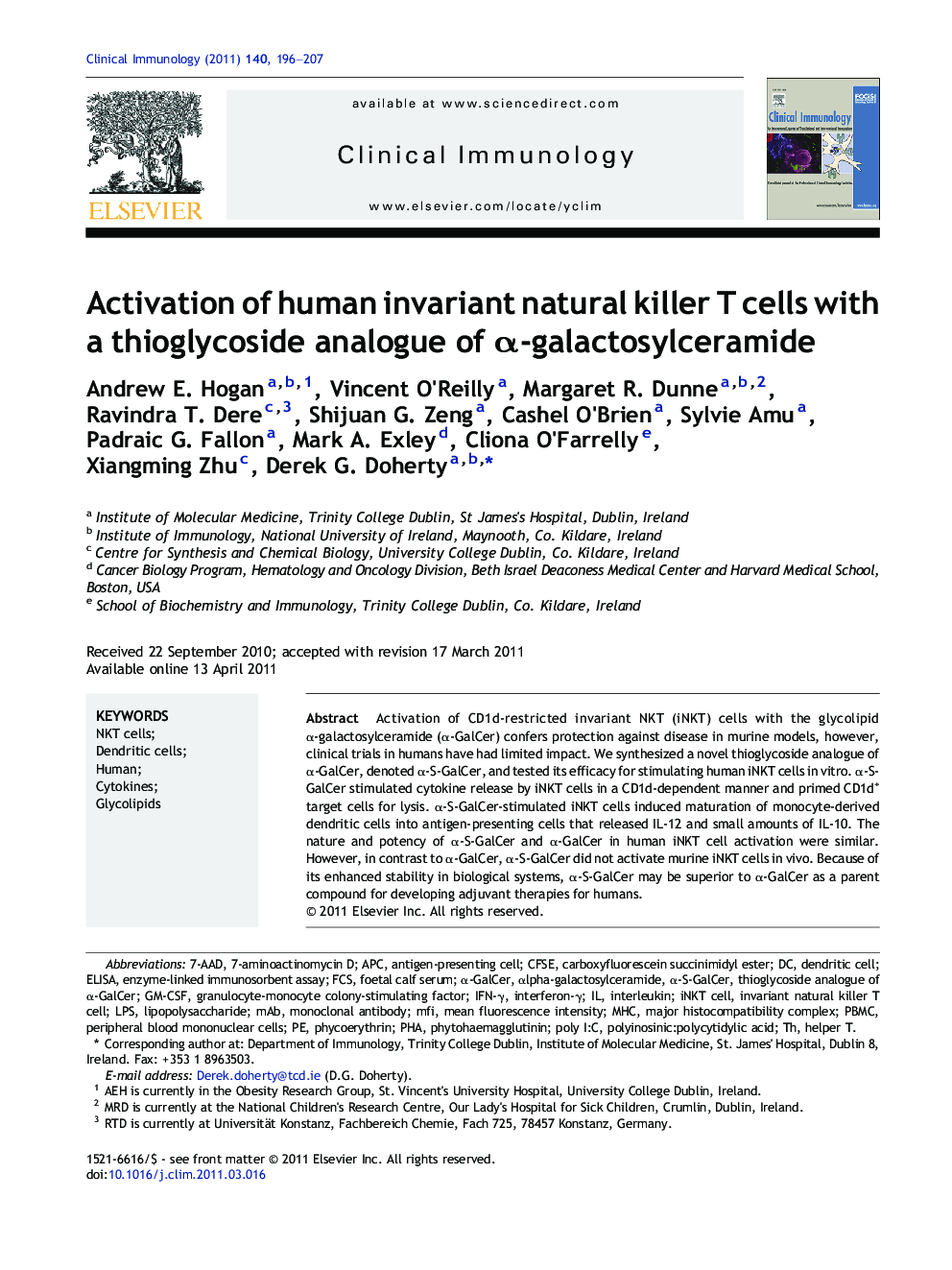| Article ID | Journal | Published Year | Pages | File Type |
|---|---|---|---|---|
| 3257330 | Clinical Immunology | 2011 | 12 Pages |
Activation of CD1d-restricted invariant NKT (iNKT) cells with the glycolipid α-galactosylceramide (α-GalCer) confers protection against disease in murine models, however, clinical trials in humans have had limited impact. We synthesized a novel thioglycoside analogue of α-GalCer, denoted α-S-GalCer, and tested its efficacy for stimulating human iNKT cells in vitro. α-S-GalCer stimulated cytokine release by iNKT cells in a CD1d-dependent manner and primed CD1d+ target cells for lysis. α-S-GalCer-stimulated iNKT cells induced maturation of monocyte-derived dendritic cells into antigen-presenting cells that released IL-12 and small amounts of IL-10. The nature and potency of α-S-GalCer and α-GalCer in human iNKT cell activation were similar. However, in contrast to α-GalCer, α-S-GalCer did not activate murine iNKT cells in vivo. Because of its enhanced stability in biological systems, α-S-GalCer may be superior to α-GalCer as a parent compound for developing adjuvant therapies for humans.
Research highlights►We tested if a thioglycoside analogue of α-galactosylceramide could activate human iNKT cells. ►α-S-GalCer stimulated CD1d-dependent cytokine release and cytotoxicity by iNKT cells. ►α-S-GalCer-stimulated iNKT cells induced maturation of dendritic cells. ►α-S-GalCer did not activate murine iNKT cells in vivo. ►α-S-GalCer may be superior to α-GalCer as a parent compound for developing adjuvant therapies.
